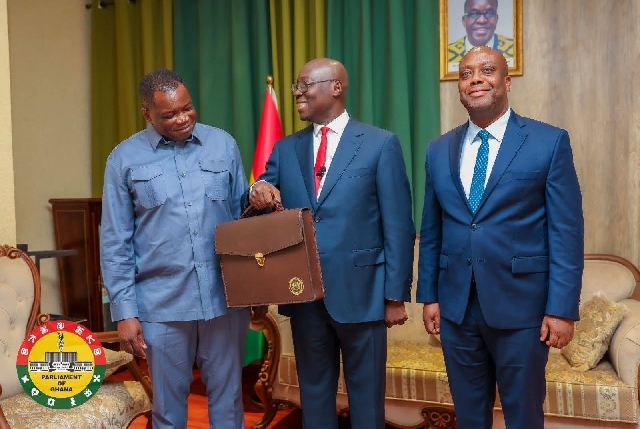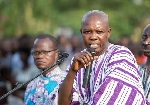GoldBod’s efficiency driving foreign exchange stability and gold-backed inflows — Ato Forson
 Ato Forson
Ato Forson
Ghana’s Finance Minister, Dr. Cassiel Ato Forson, has credited the remarkable conservation of foreign exchange and the surge in gold-backed inflows to the efficient operations of the Ghana Gold Board (GoldBod).
According to him, the state agency established to regulate and promote Ghana’s gold sector has emerged as a game-changer, significantly contributing to the stability of the Cedi and the broader economy.
Dr. Ato Forson noted that GoldBod’s role has been pivotal in the Cedi’s strong performance this year.
In April, the currency was ranked the world’s best-performing, appreciating by 16.7% against the U.S. dollar — a development that drew both domestic and international attention.
The Gold Board’s operations have also supported the Bank of Ghana’s efforts to rebuild the nation’s foreign reserves, which now stand at the equivalent of four and a half months of import cover, after reaching critically low levels during the 2022 economic crisis.
Governor Johnson Asiamah told Reuters that GoldBod’s centralised procurement and export strategy had helped plug foreign exchange leakages, enabling the central bank to shore up the reserves and strengthen investor confidence.
As of the end of September 2025, Ghana’s gold reserves had risen to 37.06 tonnes, driven primarily by GoldBod’s domestic purchasing framework.
The Minister added that the boost in reserves has improved the country’s FX buffer, enhanced fiscal credibility, and attracted renewed capital inflows.
GoldBod’s model is also gaining continental recognition.
In October, finance ministers from five African countries — Liberia, Sierra Leone, The Gambia, Sudan, and Ghana — praised the initiative as a benchmark for resource-led development during a high-level meeting on the sidelines of the 2025 IMF–World Bank Annual Meetings in Washington, D.C.
The meeting, held with AfDB President Dr. Sidi Ould Tah, commended Ghana’s approach to natural resource governance, with particular attention on how GoldBod has reshaped the gold trading and certification landscape.
Established in March, GoldBod has already delivered about $8 billion in inflows by centralising gold purchases and exports, ensuring that foreign currency earnings from the sector return to the country.
The GoldBod model continues to attract interest from other African nations eager to learn from Ghana’s institutional reforms in gold resource management.
Source: Classfmonline.com/Cecil Mensah
Trending News

Farmers' Day: Overall best farmer takes home GHS 1.2 million, tractor and full farm package
09:53
Kumawu MP donates to support Farmers’ Day celebration in his district
10:14
U/E: Tensions rise over Upper East Regional Airport Project as Alagumbe Association accuses Minister of sidelining key stakeholders
10:48
Foreign Affairs Minister welcomes resumption of Delta’s Accra–Atlanta flights, praises new Ghana–Canada route
14:18
Ghana records 12,600 AIDS-related deaths annually-Gov't says on World AIDS Day
13:11
Eminent Africans demand release of Guinea-Bissau election results
08:15
PAOG warns prospective pilgrims: Saudi Arabia to enforce strict permit regulations for Hajj 2026
09:49
Bawumia gets rainy endorsements ahead of NPP Primary in 2026
10:38
High Court explains why it ordered full Kpandai parliamentary rerun
13:05
Avenor must unite for development — First Deputy Speaker Bernard Ahiafor urges at 2025 Tutudo festival
12:21




